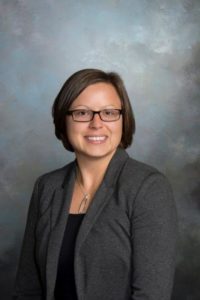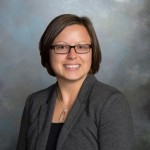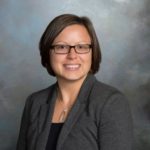Associate Professor of Psychology Laura Wilson was featured in Inc.com in an article titled “How to Respond to the Unthinkable in the Workplace.” Wilson said, “Don’t confuse getting back to work for a return to business as usual. Inevitably, revisiting the site of a traumatic event will provoke strong reactions.” Read the article.
How to Respond to the Unthinkable in the Workplace (Inc.com)
Wilson’s Study Used to Support Justification for Victims Compensation Assistance Program

Dr. Laura Wilson
Nearly half of all female rape survivors do not acknowledge that they have been raped, according to findings from a 2015 study by two University of Mary Washington psychology professors, instead defining the experience as “bad sex” or “miscommunication.” Read more.
Pa. sexual abuse victims can get thousands of dollars to pay for counseling. Here’s how to apply. (The Philadelphia Inquirer)
Upcoming Safe Zone Events
Safe Zone is excited to share we have numerous upcoming events. Below you can find information on each of them.
Safe Zone will be hosting a table on Wednesday, October 11 in the Cedric Rucker University Center lobby from 11-2pm in recognition of National Coming Out Day and Pronouns Day. Please come out and say “hi!” We always have fun swag to give out!
We are hosting our Faculty/Staff ally training on Wednesday, September 27 from 3-5pm. During that workshop, participants will learn about and discuss ways to be stronger allies and advocates for the LGBTQ+ community. At the end of the workshop, participants will have the option of signing our ally form and receiving our ally rainbow eagle sticker. Registration is required to participate. Please email lwilson5@umw.edu to register.
Our most popular event every semester is our Faculty/Staff book club. We will be reading “Sissy: A Coming-of-Gender Story” by Jacob Tobia (https://www.penguinrandomhouse.com/books/566884/sissy-by-jacob-tobia/) this semester. We ask that participants just read as much of the book as possible and attend a single session where we informally discuss the book. It’s always a good time! The discussion of the book will happen at Red Dragon Brewery on Wednesday, October 11 from 4:00-5:30pm. We picked this date because it is National Coming Out Day. Sitting around chatting about this fantastic book with fun colleagues seemed like a perfect way to honor that day of awareness and celebration. Registration is required to participate. Please email lwilson5@umw.edu to register. I also have a few free books that I will give out on a first come first serve basis for people who RSVP.
Wilson Shares Trauma Expertise With Virginia Public Media

Associate Professor of Psychological Science Laura Wilson
Associate Professor of Psychological Science Laura Wilson spoke to Virginia Public Media for an episode titled “Virginia had 20 mass shootings in 2022. How do survivors deal with the psychological aftermath?” Wilson said that people’s reactions to mass shootings are as unique as they are. Watch the segment.
Virginia had 20 mass shootings in 2022. How do survivors deal with the psychological aftermath? (VPM)
These School Shooting Survivors Are Building Remarkable Networks of Friendship and Support (The Washington Post)
Wilson Shares Trauma Expertise With ‘The Washington Post’

Associate Professor of Psychology Laura Wilson
Associate Professor of Psychology Laura Wilson, who studies how trauma affects survivors, spoke with The Washington Post for an article titled “These School Shooting Survivors Are Building Remarkable Networks of Friendship and Support.” In the article, Wilson is quoted as saying, “Someone else who’s been through this will say to you, ‘I know you’re probably not thinking about this, but here’s what happened when I went back to school.’ ” Read more.
Wilson Comments on Highland Park, Chicago Sun Times, ABC7

Associate Professor of Psychological Science Laura Wilson
Associate Professor of Psychological Science Laura Wilson commented for a piece entitled Highland Park parade mass murder suspect Robert E. Crimo III through people who knew him, police reports in the Chicago Sun Times and ABC 7. “We don’t really know much about how to predict mass shootings, and we don’t really have a profile of a shooter, what the characteristics are. They are shared by millions of people,” says Laura Wilson, an associate professor of psychology at the University of Mary Washington in Virginia. “There aren’t any clear-cut characteristics that we can definitively say, this is the mold.”